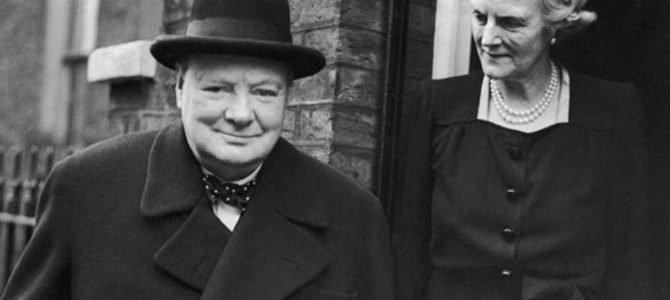
History recognizes Winston Churchill as one of the greatest statesmen in the modern era. The man whose leadership held his country, and the rest of the world, for that matter, together during brutal and unprecedented conflicts. A man of many talents, interests, and quirks, Churchill fought for the good, nary the consequences that befell him. His story is one of good conquering evil in a time of unique crises and challenges.
In the first lecture of Hillsdale College’s free online Winston Churchill and Statesmanship course (which you can take along with me here), Larry Arnn explains why the former British prime minister’s legacy matters today.
1. Churchill Was a Man of Prudence
Though Churchill did not receive a diploma from a university, he possessed a systematic intellectual and moral philosophy. Unlike most statesmen, particularly modern ones, Churchill set out to explain things, and in these explanations, he articulated a deep understanding of what human thriving ought to look like. By studying his writings, one can better understand the world and one’s purpose in it.
2. He Was a Brilliant and Tempered Statesman
The decisions Churchill made, especially during challenging times he faced throughout his lifetime, speak to the content of his character. As a leader, Churchill saw two world wars, the development of nuclear weapons, and technological advancements that gave man an unprecedented amount of power. Throughout these challenges, he understood that the merits of what we do depend on circumstances.
3. Churchill Is a Man of our Time
Churchill understood that there was something different about war and peace in modern times. In his 1925 essay “Mass Effects In Modern Life” he wrote that power had changed the way human beings related to one another and the world around them:
I have no hesitation in ranging myself with those who view the past history of the world mainly as the tale of exceptional human beings, whose thoughts, actions, qualities, virtues, triumphs, weaknesses and crimes have dominated the fortunes of the race. But we may now ask ourselves whether powerful changes are not coming to pass, are not already in progress or indeed far advanced. Is not mankind already escaping from the control of individuals? Are not our affairs increasingly being settled by mass processes? Are not modern conditions at any rate throughout the English-speaking communities hostile to the development of outstanding personalities and to their influence upon events: and lastly if this be true, will it be for our greater good and glory? These questions merit some examination from thoughtful people.When human power is much greater than it’s ever been, yet human nature remains the same, the stakes are higher than ever.
Industrialization, scientific discoveries, and technological advancements make it so the forces that govern our lives are led not by individuals, but by a throng. Churchill worried that consumers of mass media would turn their attention from “the greatest books in the world,” books which focus on truth, beauty, truth, and justice. He predicted that these eternal concepts would become forgotten by the collective attention of an inferior citizenry whose only thoughts are of pleasure — a citizenry controlled solely by their appetites and equipped with the shallow education offered by an industrialized press which churns out copy to merely feed itself. He wrote:
Public opinion is formed and expressed by machinery. The newspapers do an immense amount of thinking for the average man and woman. In fact they supply them with such a continuous stream of standardized opinion, borne along upon an equally inexhaustible flood of news and sensation, collected from every part of the world every hour of the day, that there is neither the need nor the leisure for personal reflection. All this is but a part of a tremendous educating process. But it is an education which passes in at one ear and out at the other. It is an education at once universal and superficial. It produces enormous numbers of standardized citizens, all equipped with regulation opinions, prejudices and sentiments, according to their class or party. It may eventually lead to a reasonable, urbane and highly serviceable society. It may draw in its wake a mass culture enjoyed by countless millions to whom such pleasures were formerly unknown. We must not forget the enormous circulations at cheap prices of the greatest books of the world, which is a feature of modern life in civilized countries, and nowhere more than in the United States. But this great diffusion of knowledge, information and light reading of all kinds may, while it opens new pleasures to humanity and appreciably raises the general level of intelligence, be destructive of those conditions of personal stress and mental effort to which the masterpieces of the human mind are due.
Churchill understood that what men do with their power matters and that using one’s power for good is of the utmost importance. Like other great thinkers who came before him, Churchill pondered what it meant to model a nation after the good — to govern a place where men can not just survive, but thrive.
In Plato’s “Republic,” Socrates muses about what it means to maintain a just society. These musings are echoed throughout Churchill’s writings, which indicates the former prime minister was influenced by these ancient concepts — truth, beauty, justice, and good. Churchill was great not just for the actions he took as a leader, but for his writings, thoughts, and ideas. His commitment to these eternal truths are what make his legacy timeless.









